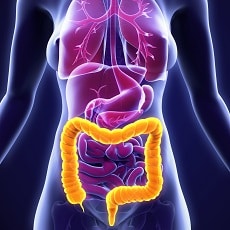
Colonic Polyps

Summary
A polyp is an extra piece of tissue that grows inside your body. Colonic polyps grow in the large intestine, or colon. Most polyps are not dangerous. However, some polyps may turn into cancer or already be cancer. To be safe, doctors remove polyps and test them. Polyps can be removed when a doctor examines the inside of the large intestine during a colonoscopy.
Anyone can get polyps, but certain people are more likely than others. You may have a greater chance of getting polyps if you :
- Are over age 50
- Have had polyps before
- Have a family member with polyps
- Have a family history of colon cancer
Most colon polyps do not cause symptoms. If you have symptoms, they may include blood on your underwear or on toilet paper after a bowel movement, blood in your stool, or constipation or diarrhea lasting more than a week.
NIH: National Institute of Diabetes and Digestive and Kidney Diseases
Source: MedlinePlus, National Library of Medicine.
MedlinePlus brings together authoritative health information from the National Library of Medicine (NLM), the National Institutes of Health (NIH), and other government agencies and health-related organizations.
Colon Polyps
National Institute of Diabetes and Digestive and Kidney Diseases
Polyps of the Colon and Rectum
American Society of Colon and Rectal Surgeons
Colonoscopy: MedlinePlus Health Topic
National Library of Medicine
Lower GI Series (Barium Enema)
National Institute of Diabetes and Digestive and Kidney Diseases
Screening Tests to Detect Colorectal Cancer and Polyps
National Cancer Institute
When You Visit Your Doctor: Colonic Polyps
Harvard Medical School
Large bowel resection - Series
Medical Encyclopedia
Listen to our
latest Podcast!







